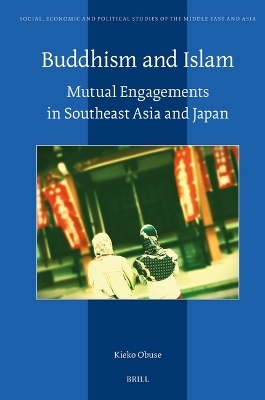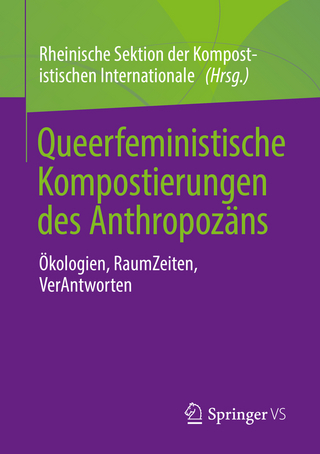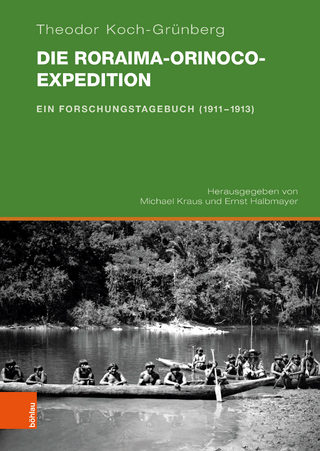
Buddhism and Islam
Brill (Verlag)
978-90-04-70454-1 (ISBN)
Buddhist-Muslim relations are usually seen as inherently confrontational. This book challenges the view of Buddhism and Islam as fundamentally irreconcilable by exploring the diverse ways representatives of the two traditions have engaged each other in Southeast Asia—the global frontstage of contemporary Buddhist-Muslim relations—and Japan—a Buddhist-majority country whose ‘Islam policy’ played a significant role in its surge to global power status. It investigates the processes through which mutual perceptions and discourses have developed in response to shifting socio-political circumstances and via the intellectual interventions of leading personalities.
Kieko Obuse, DPhil (University of Oxford), was formerly a Lecturer at Mahidol University, and is currently affiliated with the Kobe City University of Foreign Studies and McGill University. She co-edited The Oxford Handbook of the Sociology of the Middle East (2022) and is the book review editor of the Journal of Religion in Japan.
Acknowledgments
Abbreviations
Notes on Transliteration, Foreign Names, and Translation
Introduction: Diversity and Change in Buddhist-Muslim Engagements
1 Challenges Accompanying the Study of Buddhist-Muslim Engagements
2 Toward a Comprehensive Approach to Buddhist-Muslim Engagements
3 Why Focus on Doctrines?
4 Redefining Doctrines and Theologies
5 The Production of Difference: Mutual Perceptions as Interpretive Possibilities
6 Buddhist-Muslim Engagements in Southeast Asia and Japan
1 Buddhism and Islam: A Doomed Project?
1 Applying the Categories in the Theology of Religions to Buddhist-Muslim Engagements
2 The Two Types of Parallelism
3 Key Concepts and Doctrines of Buddhism and Islam
3.1 Prophethood and God in Islam
3.2 Bodhisattva and Emptiness as the Dharmakāya
3.3 Theravāda, Sōtō-Zen, and Jōdo-shin Schools
4 Comparative Analysis and Implications for Buddhist-Muslim Perceptions
4.1 Holy Men in Buddhism and Islam: Prophets, Saints, and Bodhisattvas
2 Buddhas and Prophets in the Shared History
1 The Early Period (632–1256)
1.1 First Encounters
1.2 Early Muslim Writings
1.3 Early Buddhist Writings
2 The Post-classical Period (1256–1585)
2.1 Post-classical Encounters
2.2 Post-classical Muslim Writings
2.3 Post-classical Buddhist Writings
3 The Modern Period (1585–1947)
3.1 Modern Encounters
3.2 Modern Muslim Writings
3.3 Modern Buddhist Writings
3 The Challenge of Pluralism and the Chance of Parallelism within Buddhist-Muslim Dialogue in Southeast Asia
1 Buddhist-Muslim Relations in Thailand and Malaysia
2 Dialogue Initiatives in Thailand and Malaysia
4 Southeast Asia as a Fertile Ground for Parallelism? Emerging Trends in Contemporary Buddhist-Muslim Engagements
1 Buddhist Writings in Thailand
2 Buddhist Writings in Malaysia
3 Muslim Writings in Malaysia
4 Leading Voice of Parallelism in Southeast Asia: Imtiyaz Yusuf
5 Parallelism Employed Outside Southeast Asia
5.1 Pioneer of Buddhist Parallelism: Alexander Berzin
5.2 Metaphysical Parallelism: Reza Shah-Kazemi
5 From Exoticism to Asian Brotherhood: The Japanese Engagement with Islam
1 The Early-to-Modern Period (754–1854)
1.1 Early Encounters
1.2 Japanese Writings of the Early Period
1.3 Muslim Writings (from the Seventeenth Century Onward)
2 The Late-Colonial Period (1854–1912)
2.1 Late-Colonial Encounters and First Japanese Conversions to Islam
2.2 Japanese Writings from the Late-Colonial Period
2.3 Muslim Writings of the Late-Colonial Period
3 The Imperialist Period (1912–1945)
3.1 Encounters during the Imperialist Period
3.2 Japanese Writings on Islam from the Imperialist Period
3.3 Muslim Writings during the Imperialist Period
6 Repositioning Islam in Contemporary Japan: Can Parallelism Challenge the Monotheism-Polytheism Divide?
1 Islam-Related Incidents in Japan and the Discourse of Othering
1.1 The Japanese Discourse of a Monotheism-Polytheism Divide
2 Dialogues and Symposiums
2.1 Buddhist-Muslim Dialogues in Japan
3 Muslim Writings in Contemporary Japan
3.1 Accounts by Non-Japanese Muslims
3.2 Accounts by Japanese Muslims
4 Buddhist Writings in Contemporary Japan
4.1 Seeds of Parallelism
4.2 Toward a Fully-Fledged Parallelism
4.3 Structural Parallelism of Mystical Experiences: Toshihiko Izutsu
4.4 Emptiness-Based Inclusivism: Masao Abe
4.5 Parallelism between Allah and Emptiness/Amida Buddha: Rikyū Kono
Conclusion: The Potential of Parallelism as a Method for Religious Studies
Bibliography
Index
| Erscheinungsdatum | 28.09.2024 |
|---|---|
| Reihe/Serie | Social, Economic and Political Studies of the Middle East and Asia ; 134 |
| Verlagsort | Leiden |
| Sprache | englisch |
| Maße | 155 x 235 mm |
| Gewicht | 1 g |
| Themenwelt | Sozialwissenschaften ► Ethnologie |
| Sozialwissenschaften ► Soziologie | |
| ISBN-10 | 90-04-70454-X / 900470454X |
| ISBN-13 | 978-90-04-70454-1 / 9789004704541 |
| Zustand | Neuware |
| Haben Sie eine Frage zum Produkt? |
aus dem Bereich


